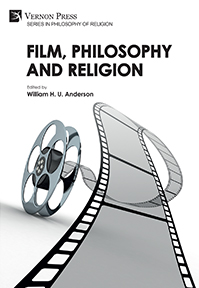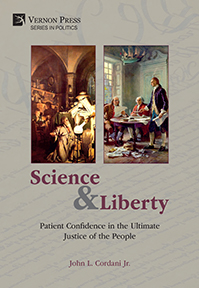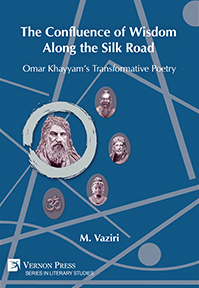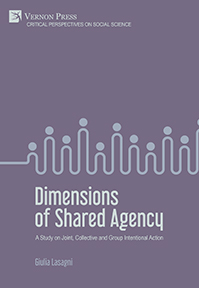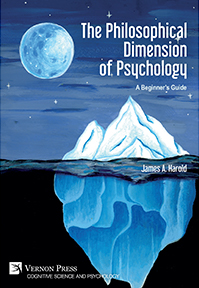Search
Browse
by Publication status
by Subject
Anthropology (26) Art (171) Business and Finance (38) Cognitive Science and Psychology (63) Communication and Journalism (51) Economics (116) Education (71) History (169) Human Geography (23) Interdisciplinary (43) Language and Linguistics (178) Law (16) Music Studies (18) Philosophy (222) Political Science and International Relations (127) Sociology (404) Statistics and Quantitative Methods (21)by Series
Series in Literary Studies (62) Series in Philosophy (57) Series in Education (49) Series in Sociology (42) Series in World History (31) Series in Politics (30) Bridging Languages and Scholarship (26) Series in Language and Linguistics (25) Cognitive Science and Psychology (20) Series in Philosophy of Religion (20) Series in American History (19) Series in Art (19) Critical Perspectives on Social Science (16) Series in Cinema and Culture (16) Curating and Interpreting Culture (15) Series on the History of Art (14) Series in Anthropology (13) Series in Critical Media Studies (13) Economics (13) Series in Business and Finance (12) Series in Music (12) Series in Performing Arts (9) Philosophy of Personalism (8) Series in Communication (8) Series in Law (8) Series in Economic Methodology (7) Series on Climate Change and Society (7) Classics in Economics (6) Series in Economic Development (6) Women's Studies (6) Philosophy of Forgiveness (5) Series in Built Environment (5) Series in Economic History (5) Series in Philosophy of Science (4) Series in Social Equality and Justice (4) Series on the History of Science (4) Serie en Sociología (3) Series in Contemporary History (3) Series in Creative Writing Studies (3) Series in Design (3) The Interdisciplinary Built Environment (3) Series in Heritage Studies (2) Series in Innovation Studies (2) Serie en Ciencias Políticas (1) Serie en Comunicación y Medios (1) Serie en Entorno Construido (1) Serie en Estudios Culturales (1) Serie En Estudios Literarios (1) Serie en Filosofía (1) Serie en Música (1) Series in Classical Studies (1) Series in Economics of Technological Change (1) Series in Philosophy of Race (1) Series in Urban Studies (1)by Language
English Spanishby Author
Browsing with filters

Film, Philosophy and Religion
Edited by
William H. U. Anderson, Concordia University of Edmonton in Alberta
Availability: In stock
454pp. ¦ $91 £71 €78
Hollywood is a $40 billion annual business, one that is highly influential in culture. If we want to know who we are as individuals and a society, what we believe and what we value, we need to know and understand Hollywood and film. Make no mistake, Hollywood is neither philosophically, politically, nor morally neutral! Many studies demonstrate how movies “affect” us long before we have thought it through. In other words, Hollywood “smuggles” all kinds of ideas into our minds and hearts without us even knowing it. While Hollywood may be the biggest and most influential in the world, this book will demonstrate the growing international influence of film from India (Bollywood), Nigeria (Nollywood), Zimbabwe (Zollywood) and Yesilçam (Turkey). 'Film, Philosophy and Religion' explicitly and implicitly takes a philosophical approach to analyzing film theoretically and methodologically. There are topic and film-specific chapters that take a theological approach, and others that explore ideas like Affect, Axiology, Art Reflecting the Artist and Transcendence (Spirituality) of Film. Hermeneutics also have a central role in the book, including films based on biblical texts that act as interpretations of these texts and fill in the blanks (albeit speculatively by way of script and directors). Chapters also explore the philosophy of aesthetics and film realism which end with theology, while other chapters explore the incompatibility of science with religion, as well as a chapter on the timely topic of rape in Turkish film. The book’s scope goes from the “Horror of Evil in Ridley Scott’s Alien Universe” to “Love Can Thaw a Frozen Heart: The Philosophy of Love in the Frozen Films” (Disney Princess Narratives). This book represents international films and scholars. The diverse perspectives from theist to atheist—and everything in-between—are sure to spark thinking and generate talking points that provide something for everyone in an accessible format. It will be of great interest to university students and professors, scholars, seminaries, and the general public.
Science and Liberty: Patient Confidence in the Ultimate Justice of the People
John L. Cordani Jr., Cornell University
Availability: In stock
172pp. ¦ $64 £51 €59
One of the most debated topics in law and politics is the role that science should play in setting policy. What does it mean to demand that politicians and the People themselves “follow the science” if science deals with questions of fact, not matters of moral or political values? This long-standing controversy has roots ranging from Plato’s philosopher-kings to Enlightenment skepticism to modern progressivism and the rise of the administrative state. ‘Science and Liberty’ explores the idea that a constitutional republic provides a fitting role for science while preserving the People’s liberty and right to self-government. It examines this topic from five perspectives: American, Historical, Philosophical, Scientific, and Moral. Providing direct access to primary historical sources, ‘Science and Liberty’ contends that America’s founders designed a constitution that was predicated on the Enlightenment theory that liberty precedes government and that presupposed the engagement of the People and their representatives at all levels of free debate. Early twentieth-century progressivism was openly hostile to these founding principles in its desire for efficient rule by scientific administrators. However, it is impossible to philosophically ground political and moral values in the findings of science, despite what modern theorists claim. Ultimately, the injunction to “follow the science” demands to substitute the values of “experts” for the values of the People themselves. By illustrating numerous examples from the hard and social sciences, ranging from physics to Biblical criticism to climate science, this book also explains that the People have a role to play in reasonably engaging with and critiquing modern science. ‘Science and Liberty’ will appeal to those interested in a variety of subjects, including law, politics, philosophy, and intellectual history, as well as scientific criticism, particularly from an American perspective. It is written to be accessible for all ages while also engaging with complex issues and sources relevant for those with advanced degrees.
The Confluence of Wisdom Along the Silk Road
Omar Khayyam’s Transformative Poetry
Mostafa Vaziri, University of Innsbruck, Austria
Availability: In stock
208pp. ¦ $79 £63 €68
For centuries along the vibrant cultural corridor of the Silk Road of Central Asia, philosophers and thinkers from Hellenic, Chinese and Indian traditions debated existential issues. Out of this stimulating milieu, the iconic poet-mathematician Omar Khayyam emerged in the eleventh century, advancing a transformative intercultural philosophy in his poetic work, the Rubaiyat. Vaziri traces the themes of Khayyam’s Rubaiyat back to the highly influential philosophical traditions of the Silk Road and uncovers fascinating parallels in original works by Heraclitus, Zhuangzi (Daoism), Nagarjuna (Mahayana Buddhism), and the Upanishads. In addition, Vaziri’s elegant translation and unique classification of the verses of the Rubaiyat reveal an existential roadmap laid out by Khayyam. In this pioneering volume, Vaziri not only fuses the multiple disciplines of literature, philosophy, culture, history and medicine but also takes the approach of the Rubaiyat to a new level, presenting it as a source of wisdom therapy that stands the test of time in the face of doubt and confusion, offering a platform for self-restoration.
Dimensions of Shared Agency: A Study on Joint, Collective and Group Intentional Action
Giulia Lasagni, Europa-Universität Flensburg, Germany
Availability: In stock
233pp. ¦ $60 £45 €51
"Dimensions of Shared Agency" investigates the way in which standard philosophical accounts have been dealing with the issue of collective actions. In particular, the book focuses on the ‘Big Five’ of analytical social ontology (namely, Michael Bratman, Margaret Gilbert, Philip Pettit, John R. Searle and Raimo Tuomela) and their accounts of shared/collective intentions and actions. Through systematic readings of different positions in the debate, the author proposes original ways of analyzing and classifying current theories of shared agency according to whether they advance a member-level or a group-level account of shared agency. While member-level accounts (MLA) are theories of shared agency based on individuals’ attitudes and actions, group-level accounts (GLA) give attention to the group of individuals considered as a whole, i.e., as an agent itself. Criticism arises against the idea that the Big Five have proposed stable group-level accounts suitable for explaining the case of shared agency as a group-level phenomenon. The widespread tendency in the debate is to endorse a perspective called holistic individualism, which maintains that high-level explanations are objective even though social facts are ontologically reducible to facts about individuals. Lasagni argues that as long as holistic individualism is held, the GLA is reducible to the MLA because holistic individualism upholds ontological individualism based on a deep individualistic premise, fixing the special status of individual agents as natural persons. The premise makes the claim to treat groups as agents contradictory to the general framework of the theory. This book profiles an alternative interpretation according to which agency should be considered as a functional kind, which is equally instantiated by different systems, such as individual human beings and organized social groups. In this way, the author claims, the reduction of the social can be avoided. "Dimensions of Shared Agency" will be of interest to doctoral students, researchers, and scholars interested in social ontology and the philosophy of the social sciences. It can also be utilised as supplementary reading or an introduction to philosophy students and scholars who are first approaching the philosophy of collective intentionality and shared agency.
The Philosophical Dimension of Psychology: A Beginner’s Guide
James A. Harold, Pepperdine University, Franciscan University of Steubenville
Availability: In stock
184pp. ¦ $65 £47 €54
Both students and professors typically assume that the content of introductory psychology textbooks, which are empirical in nature, are identical to psychology proper. Yet, what is surprising is how many interesting psychological insights can be found in both philosophy and literature that are often not found in psychology texts. Such insights are clearly psychological in nature, yet they do not go back to any empirical investigation. It seems that basic psychology textbooks—typically providing the basis for undergraduate and graduate psychology programs—represent only one important dimension of psychology: empirical psychology. But there is no simple, co-extensive identity between psychology and empirical psychology. ‘The Philosophical Dimension of Psychology: A Beginner’s Guide’ begins with an investigation of what constitutes the subject matter of psychology, which demonstrates the aspects of psychological reality that are ignored, missed or at times even theoretically denied by mainline contemporary psychology (if they lack an empirical warrant). Such matters include inner conscious experience, the world of intrinsic value, as well as the higher, uniquely personal dimension of human nature (that is, of intellect and will). This book, therefore, offers a more complete survey of the entire sphere of psychological reality, which could provide the context for more properly interpreting empirical psychological phenomena. For example, should we understand psychological conditioning principles within a broader context of personal freedom? Is a person more rightly conceived in a psychologically immanent way, that is, oriented simply toward the fulfillment of instincts and needs, or is there as well a transcendent orientation, oriented to truth and meaning? Should we understand psychology simply from the point of view of efficient causation, or do we need to also take into account final causation? It will be of interest to psychology students of either undergraduate or graduate level and of great use to those with no prior knowledge of philosophy.

